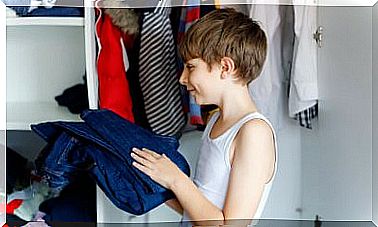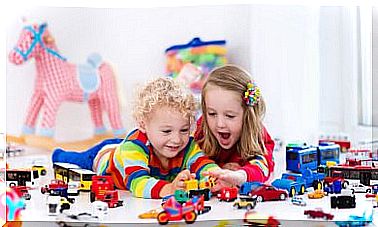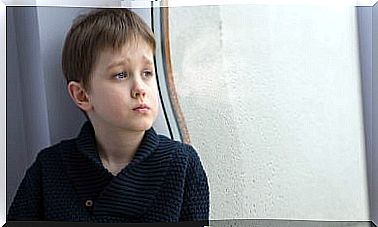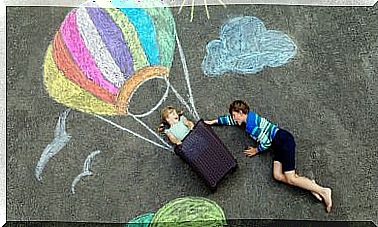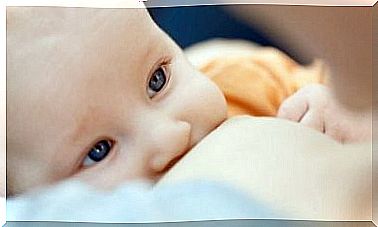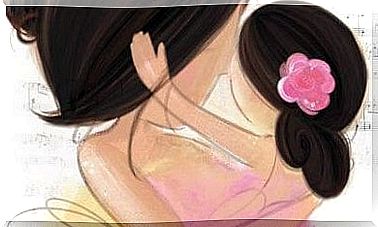How To Deal With Peculiar Children

We know that each person is different, but even so there is a great tendency to classify and place labels. Let us remember that despite the fact that there are a thousand different ways of behaving or living in general, we are all still human beings.
In the case of children, adults often tend to label them in an attempt to understand them better. Sometimes even dealing with them is complicated by these very labels. For this reason, it is important that, to begin with, you have the willingness to open your mind and expand your personal paradigm.
If you’ve ever seen or have a child that you consider to be unique, you may have even labeled him / her “peculiar.” But what then is a peculiar child? In itself, the very definition of “child” includes, among its characteristics, peculiarities.
For practical purposes, it is called peculiar children those who go beyond what is dictated by the norm, those who do not fully conform to a certain canon. Either because of their personality, tastes, or any other aspect.
The sign of peculiarity
Throughout history, the peculiarities of children have been considered as the label or the characteristic that defined them.
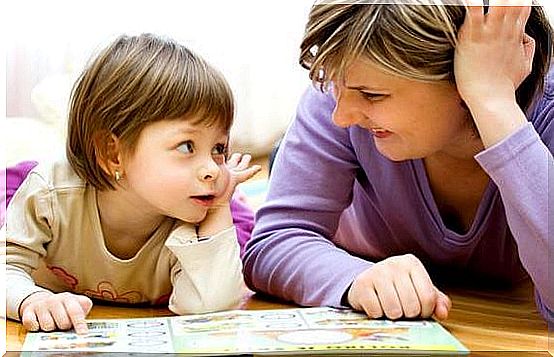
When we forget that behind all this there is a child who has not asked for this peculiarity, we forget that little person that all he wants is to be part of what society calls “normal” .
And it is that normal is something that we establish between all, so why not change it? Why don’t we understand that there is no normal, abnormal or subnormal? We are all people. Do not forget that your own characteristics can also be above, below or equal to those of others.
How to treat peculiar children
We know that social interaction is sometimes more difficult for you than for the child. Be that as it may, let’s remember that he is still a child , so with these little tips and your own common sense, you will have no problem.
- Yelling forbidden . You don’t need to raise your voice when talking to children with quirks, whatever they may be. If the little one has some kind of hearing difficulty and is not wearing a prosthesis, try to get closer to speak to him in a normal tone. Screaming is not pleasant to anyone.
- Try to put yourself at their height . Literally crouch down and catch up with him. Adults are more threatening to children because we tend to be taller. If you bend over, they notice closeness and the deal is easier.
- Avoid labeling them . The treatment becomes more complicated when instead of seeing a child you see only the difficulty or illness that he has. It has capabilities, strengths, characteristics that make it unique . Learn to look further.
- Don’t force him to answer . Neither to approach, nor to give you a kiss. Their personal space, like that of other people, is very important to them, so respect it. Ask them, but don’t force them to answer.

Other important tips
- Be patient . These children often have characteristics that can be somewhat agitating to an adult’s vision. Be patient. You just need some time to understand him.
- Notes . To deal with peculiar children you have to learn to observe above all else. The children will leave you clues about how they feel and what they need . This information will be useful to you when dealing with them.
- Change the way you think . There are no rules to follow in interactions beyond feeling comfortable. Sometimes we think something is uncomfortable that is not. We are the ones who make it uncomfortable.
- Taking for granted is out of the question . If you do not know something about the peculiarity of the child, ask his parents or himself. Don’t take for granted what it can or cannot do. Asking with respect, prudence and humility does not generate rejection.
How are peculiar children going to treat you?
Children with special characteristics may be more reserved or more outgoing; more affectionate or less sociable. They can be in many ways, but they are always grateful to those who take the time to treat them with love and respect.


